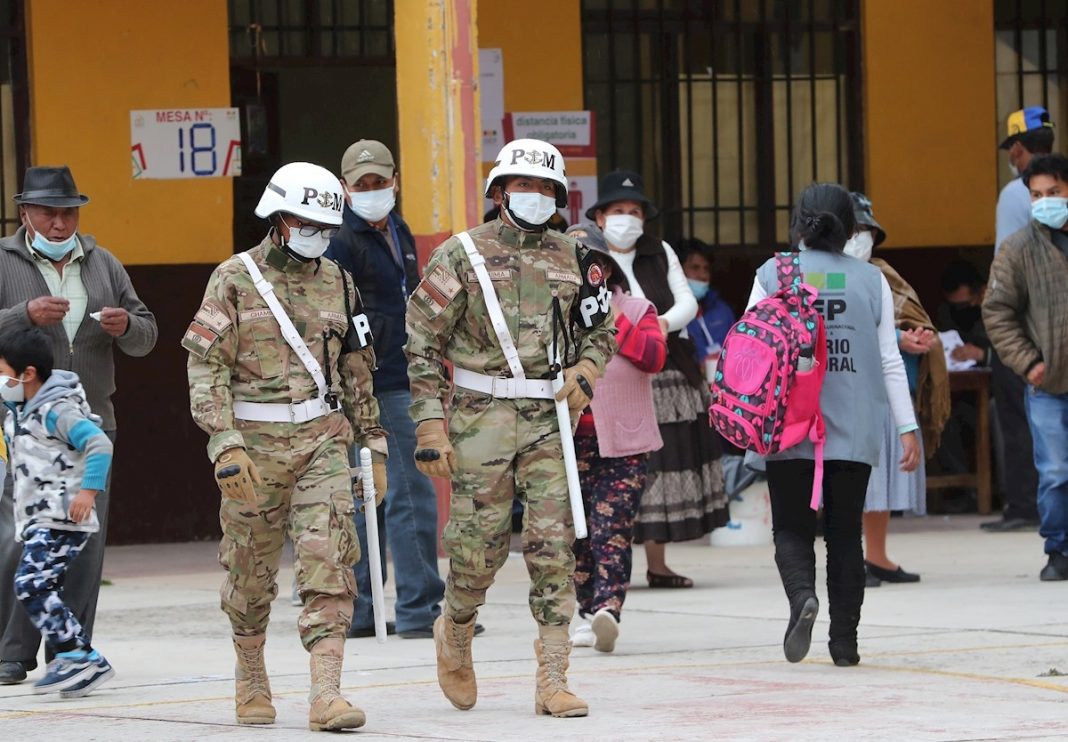RIO DE JANEIRO, BRAZIL – Bolivians elected this Sunday, in the second round of elections, the governors of the departments of La Paz, Chuquisaca, Tarija, and Pando, the last cycle of a challenging electoral calendar in Bolivia after the political and social crisis of 2019 and in the midst of a pandemic.

The day passed calmly but with less voter participation by the more than 2.7 million Bolivians eligible to vote. The count began after the closing of the polling stations that operated from 8 AM to 5 PM local time during the biosecurity measures due to the pandemic.
La Paz, Tarija, Pando, and Chuquisaca went again to the polls, because in the first round of elections on March 7, no candidate had reached more than 50 % of the votes or more than 40 %, with ten points difference over the second most voted candidate.
TURNING THE PAGE ON 2019
Bolivia lived a political crisis in 2019 that altered the electoral calendar. It recurred in October 2020, when the general elections were held, for which former president Evo Morales was ineligible; he served as head of the campaign of the Movement to Socialism (MAS) party whose candidate Luis Arce managed to win the Presidency in the first round.
The president of the Supreme Electoral Tribunal (TSE), Salvador Romero, said at the opening of the day that Bolivia closes “the most complex electoral cycle” of its history (…) which was preceded by a difficult stage, which included the annulment of a general election and the destruction of almost half of the infrastructure of the Departmental Courts”.
Read: Bolivian indigenous politician who filed claim of “coup” denies she is a puppet of MAS
“The echoes of the bitter confrontation between Bolivians still resonate in the antagonisms and polarizations that deepen the political, social, and regional gaps,” he added.
As in the past subnational elections, the Bolivian president, Luis Arce, did not attend the inauguration of the electoral process due to the presence of the observation mission of the Organization of American States (OAS), which the ruling party accuses of complicity in the alleged “coup d’état” against Morales in 2019.
Luis Arce said after casting his vote that “once again the Bolivian people and the Latin American people are clearly showing their democratic vocation to solve differences and problems through the direct vote of the population.”
LEADERSHIP OF THE MAS
The Movement towards Socialism aimed at the support of the rural and suburban sectors to consolidate its leadership, after winning in the first round the governorships of Cochabamba, Oruro, and Potosí.
In the March 7 elections, MAS did not manage to win in regions where it had had a strong presence. Some party members even considered that it was time for self-criticism and reorganization within the movement.
In those elections, the ruling party obtained only two of the ten most important mayorships and lost some ground in several municipalities.
“We have complied and accompanied our candidates for this second round of subnational elections (…) The Bolivian people have a democratic vocation, and we are very confident,” Morales wrote this Sunday on his Twitter account.
In the first round, former presidential candidate Luis Fernando Camacho, of the opposition Creemos party, won Santa Cruz’s governorship; and Alejandro Unzueta, of the opposition Movimiento Tercer Sistema (MTS), won the governorship of Beni.
LOW PARTICIPATION
The Alianza Observación Ciudadana de la Democracia (OCD) stated that several polling stations reported a lower turnout of citizens than the 86.1 % in the March 7 elections.
The former president of the Senate and elected mayor of El Alto, Eva Copa, also expressed her concern for the absenteeism in several polling stations of that city, which years ago was a political stronghold of MAS, a party that expelled politicians from its ranks.
Several candidates called on Bolivians in the four departments where the second round was held to go to the polls.
For these elections, Álvaro Ruiz of MAS and Óscar Montes of Unidos por Tarija were running against each other in Tarija; in Chuquisaca Damián Condori Herrera of Chuquisaca Somos Todos and Juan Carlos León of MAS; in Pando Regis Richter of MTS and Miguel Becerra of MAS; and in La Paz Franklin Flores of MAS and Santos Quispe of the Jallalla alliance.
By law, the four departments have until next Sunday, April 18, to announce the official results. The new authorities of the regional and municipal governments of Bolivia are expected to take office on May 3.
Source: efe/dw/brb

